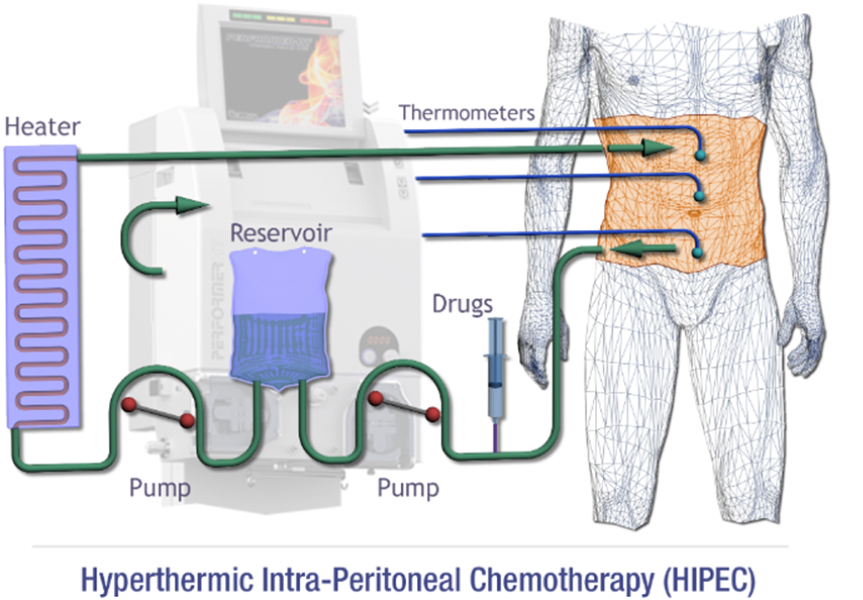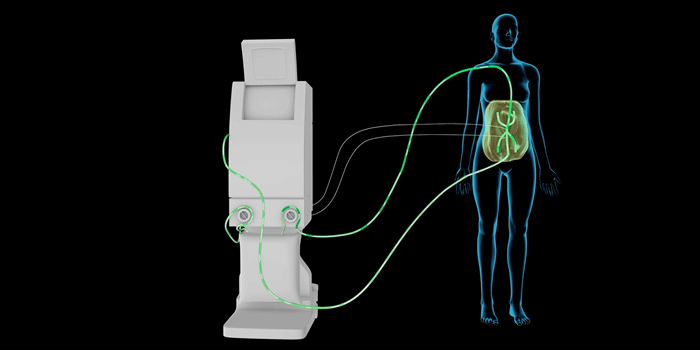WHAT IS HIPEC?

Some types of cancers are very difficult to treat. However when these cancers are confined to the peritoneal (abdominal) cavity, Hyperthermic Intra Peritoneal Chemotherapy (HIPEC) becomes an options for particular patients.
HIPEC is a therapy used in combination with surgery in the treatment of advanced abdominal cancers, where chemotherapy (anticancer) medicine are infused along with heated fluid and circulated inside the peritoneal cavity (abdomen) for a period of time.
What happens during HIPEC?
After patient selection for HIPEC, the surgeon plans for surgical removal of tumor under general anesthesia. Once all the visible cancer cells are removed from abdominal cavity, HIPEC procedure is started using a specialized device. The surgeon will continuously circulate a heated sterile solution containing a chemotherapeutic agent throughout the abdominal cavity, for a duration of 60-90 minutes. The entire procedure of surgery with HIPEC will lasts between six to nine hours, but it may take longer depending on the burden of disease.
What is recovery like after HIPEC?
As the procedure involves prolonged surgery and hyperthermic therapy patient is usually monitored in ICU for one or two days. Due to use of intense dose of intraperitoneal chemotherapy, the digestive system will need to recover completely before the patient is started on oral feeds. Patients are generally hospitalized for seven to ten days.
Who are candidates for HIPEC Surgery?
The Candidate selection depends on the tumor type, cancer stage, tumors without any spread beyond the abdomen and based on general condition of the patient. Cancer types most commonly treated with HIPEC are
- Pseudomyxoma peritonei(Cancer that arises from appendix and spreads into entire abdominal cavity
- Primary peritoneal mesothelioma
- Colorectal Cancer with limited peritoneal disease
- Stomach cancer with very limited peritoneal involvement
- Appendiceal cancer
- Ovarian Cancer
What is the difference between traditional chemotherapy and HIPEC?
HIPEC deliver a high dose chemotherapy directly into abdomen to act against cancer cells with fewer side effects. Whereas traditional chemotherapy is given intravenously and is circulated into the blood stream which is associated with more systemic toxicity. In HIPEC when chemotherapy is heated to a set temperature, it helps the chemotherapy to kill cancer cells more effectively.
What are the risks of HIPEC?
All surgeries are associated with the risk of bleeding and infection. In HIPEC the risk may vary depending on the type of cancer and the type of chemotherapy drugs used. Some of the common side effects include
- Pain
- Nausea and vomiting
- Altered bowel habits
- Bloating
- Fatigue
- Weight loss







